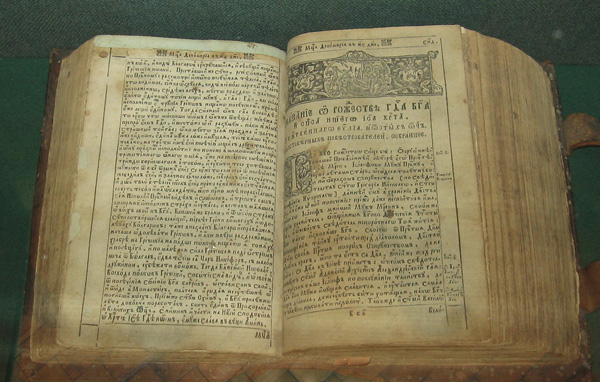|
Obrad (veliki Tepčija)
Obrad ( sr-cyr, Обрад) was a Serbian nobleman that served king Stefan Vladislav (r. 1234–43), with the title of ''veliki tepčija''. He is the oldest ''veliki tepčija'' known by name. The title-holder took care of the royal estates. He is mentioned in the 1230s, as a "great lord" (''veliki gospodin''). He had a ''menologion'' written, which later came into the possession of Radoslava ("the wife of the ''tepčija''", presumably ''veliki tepčija'' Mišljen (veliki tepčija), Mišljen). The work includes songs to St. Sava. He seems to have not belonged to the royal family. References Sources * * * {{DEFAULTSORT:Obrad 13th-century Serbian nobility People of the Kingdom of Serbia (medieval) 13th-century deaths 12th-century births Tepčija Medieval Serbian magnates ... [...More Info...] [...Related Items...] OR: [Wikipedia] [Google] [Baidu] |
Stefan Vladislav
Stefan Vladislav ( sr-cyr, Стефан Владислав, ; – after 1264) was the King of Serbia from 1234 to 1243. He was the middle son of Stefan the First-Crowned of the Nemanjić dynasty, who ruled Serbia from 1196 to 1228. Radoslav, the eldest son of Stefan the First-Crowned, was ousted by the Serbian nobility due to increasing Epirote influence through his marriage alliance to Theodore Komnenos Doukas; thus Vladislav became his successor. He is celebrated as Saint Vladislav by the Serbian Orthodox Church. During Vladislav's reign, his uncle Archbishop Sava went on a pilgrimage and died in Bulgaria while on his way home. Vladislav obtained the remains and buried them in the Mileševa monastery, which he had built intended to be his burial place. Serbia was politically aligned with Bulgaria at the time, since Vladislav was married to Beloslava, the daughter of Ivan Asen II. Vladislav secured Hum, a maritime province under attack by Hungarian crusaders. After th ... [...More Info...] [...Related Items...] OR: [Wikipedia] [Google] [Baidu] |
Menologion
Menologium (), also written menology, and menologe, is a service-book used in the Eastern Orthodox Church and those Eastern Catholic Churches which follow the Byzantine Rite. From its derivation from Greek , ''menológion'', from μήν ''mén'' "a month", via Latin ''menologium'', the literal meaning is "month-set"—in other words, a book arranged according to the months. Like a good many other liturgical terms (e.g., lectionary), the word has been used in several quite distinct senses. Definitions ''Menologion'' has several different meanings: * "Menologion" is not infrequently used as synonymous with "Menaion" (pl. ''Menaia''). The Menaia, usually in twelve volumes—one for each month—but sometimes bound in three, form an office-book, which in the Orthodox Church, corresponds roughly to the '' Proprium Sanctorum'' of the Latin Breviary. They include all the propers (variable parts) of the services connected with the commemoration of saints and in particular the cano ... [...More Info...] [...Related Items...] OR: [Wikipedia] [Google] [Baidu] |
Mišljen (veliki Tepčija)
Mišljen ( sr-cyr, Мишљен; ca. 1330) was a Serbian nobleman that served king Stefan Dečanski (r. 1321–31), with the title of '' veliki tepčija''. The title-holder took care of the royal estates. He was wealthy. In 1330 he had a monastery dedicated to the Holy Apostles built somewhere in eastern Hum. He restored the church, donated books, vestments and gold, and built himself an adorned tomb. This church is located in the village of Crkvina, 6 km from Goražde (in Bosnia and Herzegovina). The ''menologion Menologium (), also written menology, and menologe, is a service-book used in the Eastern Orthodox Church and those Eastern Catholic Churches which follow the Byzantine Rite. From its derivation from Greek , ''menológion'', from μήν ''m ...'' written on demand of ''veliki tepčija'' Obrad ( fl. 1230s) is recorded to have later came into the possession of Radoslava, "the wife of the ''tepčija''", presumably of Mišljen. References Sources * * * * ... [...More Info...] [...Related Items...] OR: [Wikipedia] [Google] [Baidu] |
Kuzma (tepčija)
Kuzma ( sr-cyr, Кузма; 1306) was a Serbian nobleman that served king Stefan Milutin (r. 1282–1321), with the title of ''tepčija''. The Serbian court hierarchy at that time was as follows: '' stavilac'', ''čelnik'', ''kaznac'', ''tepčija'' and '' vojvoda'', the supreme title. He was given the governorship of Vranje (a ''župa'', "county", including the town and neighbouring villages) some time before 1306. He was a contemporary of ''kaznac Kaznac ( sr-cyr, казнац) was a court title of the state employee in medieval Bosnia and Serbia who was in charge for the treasury in the territory under his jurisdiction — ''kaznačina'' (казначина). The name of the title is derived ...'' Miroslav, who held the surroundings of Vranje. References Sources * 14th-century Serbian nobility People of the Kingdom of Serbia (medieval) Vranje 13th-century births 14th-century deaths Tepčija {{Serbia-noble-stub ... [...More Info...] [...Related Items...] OR: [Wikipedia] [Google] [Baidu] |
13th-century Serbian Nobility
The 13th century was the century which lasted from January 1, 1201 ( MCCI) through December 31, 1300 ( MCCC) in accordance with the Julian calendar. The Mongol Empire was founded by Genghis Khan, which stretched from Eastern Asia to Eastern Europe. The conquests of Hulagu Khan and other Mongol invasions changed the course of the Muslim world, most notably the Siege of Baghdad (1258), the destruction of the House of Wisdom and the weakening of the Mamluks and Rums which, according to historians, caused the decline of the Islamic Golden Age. Other Muslim powers such as the Mali Empire and Delhi Sultanate conquered large parts of West Africa and the Indian subcontinent, while Buddhism witnessed a decline through the conquest led by Bakhtiyar Khilji. The Southern Song dynasty would begin the century as a prosperous kingdom but would eventually be invaded and annexed into the Yuan dynasty of the Mongols. The Kamakura Shogunate of Japan would be invaded by the Mongols. Gorye ... [...More Info...] [...Related Items...] OR: [Wikipedia] [Google] [Baidu] |
People Of The Kingdom Of Serbia (medieval)
A person ( : people) is a being that has certain capacities or attributes such as reason, morality, consciousness or self-consciousness, and being a part of a culturally established form of social relations such as kinship, ownership of property, or legal responsibility. The defining features of personhood and, consequently, what makes a person count as a person, differ widely among cultures and contexts. In addition to the question of personhood, of what makes a being count as a person to begin with, there are further questions about personal identity and self: both about what makes any particular person that particular person instead of another, and about what makes a person at one time the same person as they were or will be at another time despite any intervening changes. The plural form "people" is often used to refer to an entire nation or ethnic group (as in "a people"), and this was the original meaning of the word; it subsequently acquired its use as a plural form of pe ... [...More Info...] [...Related Items...] OR: [Wikipedia] [Google] [Baidu] |
13th-century Deaths
The 13th century was the century which lasted from January 1, 1201 ( MCCI) through December 31, 1300 ( MCCC) in accordance with the Julian calendar. The Mongol Empire was founded by Genghis Khan, which stretched from Eastern Asia to Eastern Europe. The conquests of Hulagu Khan and other Mongol invasions changed the course of the Muslim world, most notably the Siege of Baghdad (1258), the destruction of the House of Wisdom and the weakening of the Mamluks and Rums which, according to historians, caused the decline of the Islamic Golden Age. Other Muslim powers such as the Mali Empire and Delhi Sultanate conquered large parts of West Africa and the Indian subcontinent, while Buddhism witnessed a decline through the conquest led by Bakhtiyar Khilji. The Southern Song dynasty would begin the century as a prosperous kingdom but would eventually be invaded and annexed into the Yuan dynasty of the Mongols. The Kamakura Shogunate of Japan would be invaded by the Mongols. Goryeo resi ... [...More Info...] [...Related Items...] OR: [Wikipedia] [Google] [Baidu] |
12th-century Births
1 (one, unit, unity) is a number representing a single or the only entity. 1 is also a numerical digit and represents a single unit of counting or measurement. For example, a line segment of ''unit length'' is a line segment of length 1. In conventions of sign where zero is considered neither positive nor negative, 1 is the first and smallest positive integer. It is also sometimes considered the first of the infinite sequence of natural numbers, followed by 2, although by other definitions 1 is the second natural number, following 0. The fundamental mathematical property of 1 is to be a multiplicative identity, meaning that any number multiplied by 1 equals the same number. Most if not all properties of 1 can be deduced from this. In advanced mathematics, a multiplicative identity is often denoted 1, even if it is not a number. 1 is by convention not considered a prime number; this was not universally accepted until the mid-20th century. Additionally, 1 is the ... [...More Info...] [...Related Items...] OR: [Wikipedia] [Google] [Baidu] |
Tepčija
Tepčija ( sr-cyr, тепчија) was a court title of Croatia, Serbia and Bosnia in the Middle Ages. The functions and position in the court is unclear. It was first mentioned in Croatia in the second half of the 11th century, and later in Serbia in the first half of the 13th century, and in Bosnia during 13th and 14th century. The title-holder took care of the country's feudal estates. There were two or three levels in title, the ''veliki tepčija'' (grand), "''tepčija''" and ''mali tepčija'' (lower). "Veliki tepčija" took care of the royal estates. ''Tepčija'' had a similar office to that of the ''kaznac'' , and cared of all major feudal estates bar that which belonged to the Court. "Tepčija" had executive authorities. His servants were called ''otroci'' ( ''otrok''). The Serbian court hierarchy at the time of king Stefan Milutin (r. 1282–1321) was as follows: ''stavilac'', ''čelnik'', ''kaznac'', ''tepčija'' and '' vojvoda'', the supreme title. In the Dečani chrysobul ... [...More Info...] [...Related Items...] OR: [Wikipedia] [Google] [Baidu] |



_1938.jpg)

